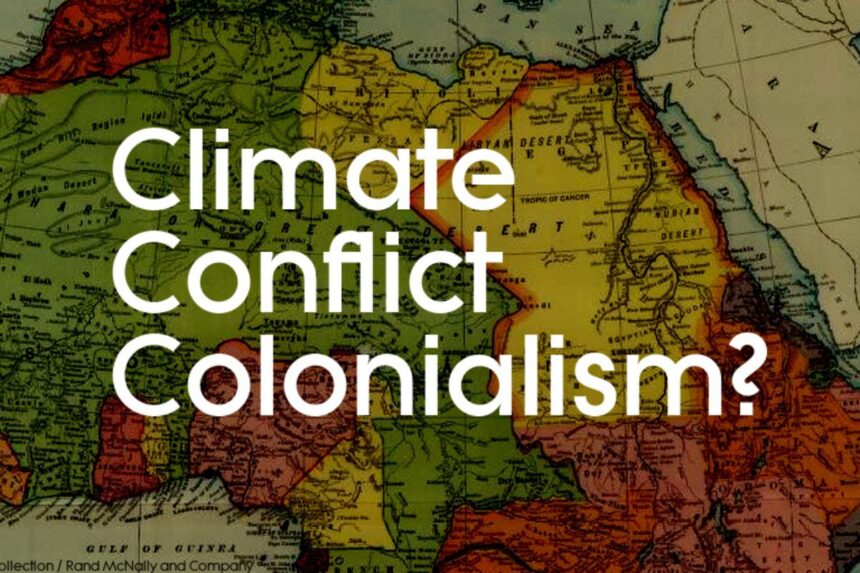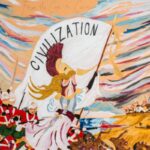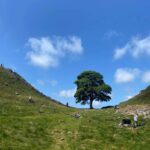This article explores the relation between the development of the climate crisis and the history of colonialization. It does so by examining the concept of ‘Coloniality of Nature’ as the ontological point where a hierarchy of power between man the modern and the natural environment was brutally evolved.
What exists is a fragment, a very brief event that eventually could
(Krenak 2018)
make us disappear from here and many other organisms before us,
which is what we’re doing, making others disappear. Under the
pretense of being in a world on its way to disappearing, we’ve been
disappearing with all of our travel companions.
Human activity has majorly affected climate change. The rise of CO2 and other greenhouse gases, the terraforming caused by megacities and production of goods, the increase in the risk of extinction and so on are some examples of humanities central role in the climate crisis. What is at stake is not planet earth, but planet earth as we know alongside its known biodiversity. If our species survive these changes, our societies might not. To the very least our ways of living will be a lot less hospitable. Scientists are even approaching this time as the sixth extinction, where us humans along with other beings face disappearing. According to Elizabeth Kolbert we are a species with world altering capacity and are doing so in quite a fast pace (Kolbert 2014). It is now understood that humans have such a role in climate change that we are considered a geological factor. The concept of the Anthropocene was officially proposed about two decades ago by Nobel prize winner Paul Crutzen in the beginning of the century and started being used by scientists to refer to a geological epoch in which human activity dominated and changed planet Earth on such a grand scale (Crutzen 2002). However, this definition can be for some abstract and insufficient, leading to other characterizations. Many questions and debates arise. Is this conceptualization restricted to the natural sciences? How did humans become such a force? When did this epoch started? Besides Crutzen’s definition of the Anthropocene there are other perspectives telling its story. The debate and scientific encounters to discuss the characteristics of this term have been filled with different views. From Eco-Marxism to
Naturalist interpretations, an array of terms has been proposed due to the misleading aspects of the name Anthropocene. Being those the anthropocentric factor which leads to questionings as to what defines the Anthropos, human species and human societies. However polemic this term is, for this paper it was chosen to remain with it, as Anna Tsing said, for exactly the problematic it brings, it shines a light on the inequalities found in planetary environmental issues (Haraway & Tsing 2019). All things considered, it has brought up many important questions regarding climate change, man-made impacts, questions of responsibility and so on. It is an interesting starting point to debate the Anthropos position in a complex web of interaction between other animals, the natural environment and each other.
A connection that was not always agreed upon, for, as a result from the Enlightenment, nature and society have been strongly separated in their ontologies. Man, the modern being filled with reason and thought could approach and study nature as it’s object. Now, this view is being more and more understood as obsolete (Hornborg 2015). The rise of so much debate comes with a need for restructuring knowledges. “At its best, the Anthropocene concept entwines human history and natural history—even if the “why” and the “how” remain unclear, and hotly debated.” (Moore 2016). It is, thus, fundamental to consider, as environmental history does, these linked relations between society and nature to achieve a more thorough interpretation. To some, environmental history is a culmination of previous existing histories (O’Connor 1998), because humans keep on shaping their natural surroundings and the dominant system is constantly exploiting natural resources. There is a constructed perception that nature is a property and commodity, belonging to the needs of societies. However lately these needs have been reaching a limit for the resources are finite.
Modernity’s Division Nature vs. Man
It is possible to argue that as one of modernity’s main foundations lays the appropriation of natural biodiversity of the tropics (Coronil 2000). Nature is transformed into mere “land” (Alimonda 2019), reduced to a simple production factor “…with this transformation it removed all ethical and cognitive constraints against its violation and exploitation.” (Mies & Shiva 1993). This perspective on nature as mere product can be traced back to a cartesian dual view between reason and nature, which is also a split between culture, humans, the bearers of reason, rationality and logic and on the other side human’s exterior: the environment, nature.
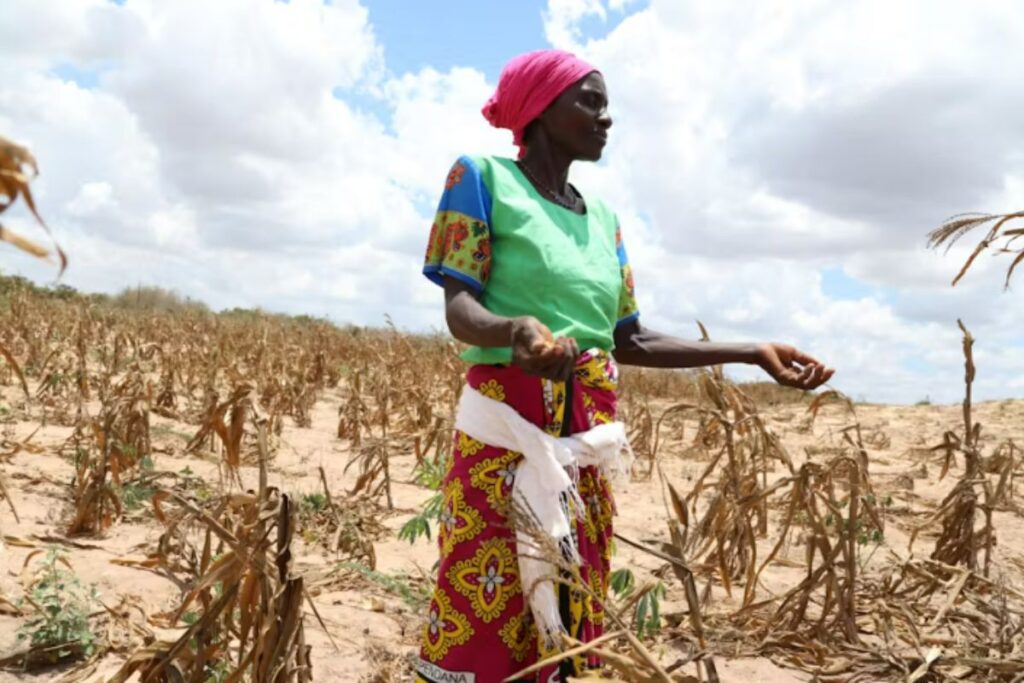
Colonialism has played a significant role in the climate crisis through the extraction and exploitation of natural resources in colonized territories. The relentless pursuit of resources, deforestation, and introduction of unsustainable agricultural practices destabilized local ecosystems, leading to long-term environmental damage. Additionally, the industrialization and development models imposed or adopted from colonial powers have accelerated carbon emissions and environmental degradation.
It is this separation that the market relies on, to then not need justification for advancing its exploitations. This duality entails a hierarchy, and the understanding of culture as an overcoming from nature and from the nature status. This would create an ideological justification to dominate and exploit it (Pascual & Herrero 2010) leading to an infinite production and development ideal. However, it is this “development” that eco-feminists perceive and call as “maldevelopment”, a fragmented and reductionist perspective:
It also criticises the dichotomous and androcentric logic of development and science, and defends women’s involvement in the struggle for respect for life. It incorporates an analysis of colonialism as a fundamental element for comprehending the destruction of natural goods and the development of capitalism. This feminism calls the Western economic model imposed in Third World countries “maldevelopment” – a model that intensifies the pillaging and destruction of nature for the benefit of a minority of elite in the Global North.
(Beltrán 2019)
Capitalism’s history is often associated with industrial centres but as many decolonial scholars argue this system was not simply born in Europe, as we might so often learn. Capitalism and industrialization wouldn’t have been possible without the Americas (Quijano & Wallerstein 1992). The role nature played in this cannot be merely reduced to a production factor. Nature was a major force in creating richness and modernity (Coronil 2000). From the 16th century, when a western view starts to occupy a “new world” by colonising it to be its own periphery, a rationalization and systematically reshaping of nature intensifies. Indeed, this commodification of nature happens for the market and production but too for accumulation of personal wealth (Worster 1990). This led to an enrichment of Europe on the cost of the people who lived in the colonies before the settler’s arrival and too of their natural environment.
Coloniality Of Nature
To examine this context and power struggles decolonialism works particularly with ‘Global Coloniality’ which can often be misunderstood with colonialism. The latter being a historical phenomenon, when Europe started to expand itself during the 16th and 17th Century. In this context, many territories and societies in this “New World” were invaded, land was taken and systems were deeply changed. This allowed the Americas to be seen as “the first periphery of the European colonial system, the original hidden side of modernity.” (Alimonda 2019).
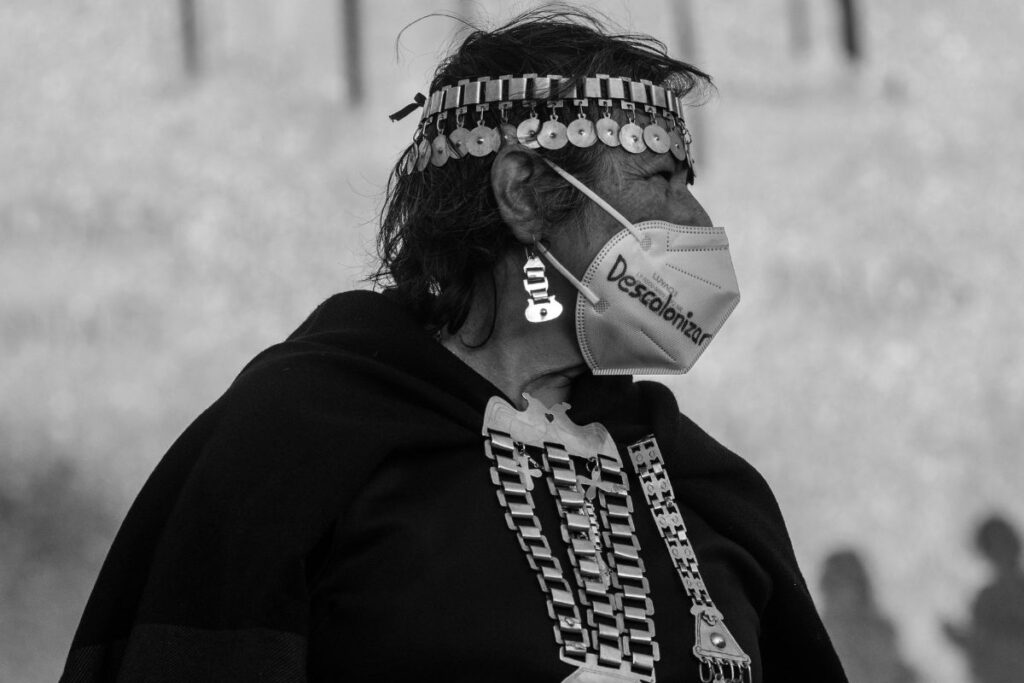
By understanding the colonial roots of the climate crisis, we can recognize the systemic injustices and imbalances that persist today. This understanding can lead to more equitable solutions that prioritize the rights and knowledge of indigenous and historically marginalized communities. It also underscores the need for reparative and restorative justice in environmental policies and international climate agreements.
Later on, colonial systems were deeply imposed in Africa and Asia, where too a set of beliefs and conducts had to be followed. From it, a matrix of authority and power came to be, where a racial order and hierarchy was created and naturalized. A new global power is stablished through the constitution of the Americas and the colonial/modern Euro-centred capitalism (Quijano 2000). This was the stage for coloniality which would thus be understood as one of colonialism’s outcomes (Tlostanova 2019).
This hierarchy was founded on the invaders’ control of knowledge. The colonial organization of society consisted in submitting the native population to the management and control of the invading country. In the 17th century, Dutch, French and British commercial enterprises took advantage of the Caribbean lands and African slaves to establish a plantation economy that contributed to the enrichment of Western European monarchies and created the conditions for the Industrial Revolution. The combination of a growing economic discourse and an increasing secularization of life was a step towards the second stage, the civilizing mission led by England and France. When the US took over the leadership from England and France, after World War II, the mission was to develop the ‘underdeveloped’ countries and to modernize the traditional ones. This third stage was the developmental and modernizing mission. It had a strong competition with another modernizing and developmental mission called socialism. In the period from 1970 to 2000 neo-liberalism was consolidated in the wake of the collapse of the Soviet Union.
(Tlostanova and Mignolo 2009)
This global power fundaments itself in a social classification and works as a tool for domination of knowledges everywhere possible. This process was also founded on a portentous scientific revolution that gave rise to science as we know it today, modern science, which once again, tends to separate nature from society. As Melinda Morgan shows it is a legacy from the Enlightenment, when the notion of agency, meaning the capacity to act was believed to be mostly human and therefore human exceptionalism is brought to the fore (Morgan 2019). Humans as agents are capable of thinking and observing.
There is a colonial logic of objectification of nonhuman world, where the status of subjects in their own right is denied and instead, they are seen as objects to be mastered and exploited (Schulz 2017). Therefore, nature is seen as objects of study, in a way that instead of being understood it must be explained (Santos 2006). This dichotomy is perceived as one side being modern Europe, carrier of the Enlightenment, culture, civilization, reason and thus science. On the other, the exterior. All that is not belonging in Europe’s context, is the ‘Other’, the periphery of Europe’s colonial system, one not seen as an autonomous potential but merely represented by land and a constructed idea of primitive state. One that is seen as pre-modern and pre-civilized, in need of change and development.
A side as showed before taken as inferior by coloniality’s classification and power relations. Héctor Alimonda writes that this ‘coloniality of nature’ entails the exploitation of a subaltern space by the “prevailing regimes of accumulation” (Alimonda 2019). He mentions how the introduction of monoculture in Latin America’s ecosystems and invasions of European diseases are examples thereof. A disruption of natural cycles and social-ecological systems that were already running in the Americas takes places. Furthermore, he mentions O’Connor when writing: “A long history of unequal, combined development and a global rupture of the society-nature metabolism increasingly penalises the Latin American nature and the people that make their lives in it” (Alimonda 2019).
This configuration is reduced to an imposed role of being domesticated and occupied on behalf of development. Consequently, we see a simplification of agricultural systems and loss of biodiversity, rise of monoculture and deep subalternization of local (environmental or not) epistemologies and semiotics (Alimonda 2019). Boaventura de Sousa Santos writes that this segregation of nature precludes the creation of limits and of balance and that is why ecology can only affirm itself through an ecological crisis (Santos 2006).
Final Remarks: Decolonialization Of Thought
The consequences are happening in a fast geological pace, but humanity seems so detached from nature and from each other that this is still not felt by some in their everyday protected lives to the point of denial. When understanding the timescale of planet Earth’s system, these changes are happening incredibly fast. Western thoughts about nature are so intrinsic with colonialization and that needs rethinking. Doing a parallel to Spivak, Chakrabarty writes about the planets otherness, how the system we live in has been ‘othered’ as to belonging to something else different than “us” (Chakrabarty 2014). This differentiations or border, called by Anke Bartels ‘man-made entities’, are only possible to be created by those who have the power to install and patrol them. Furthermore, they emerge from a wish to delineate an inside from an outside, self from other and local from stranger (Bartels et al 2019). It is possible to see a need for self-definition. One developed by the confrontation with the other, Europe creates itself in this scenario. European nations are built on this colonial stage, where they thrive, new borders are created, and they start to form an identity.
However, since there have been frontiers there has been counter-practices. One of them is the social movement of Ecofeminism, that will particularly work with these dichotomies and frontiers for in it is the patriarchal distinction man/woman, where man dominate and woman are dominated alongside nature (Pascual & Herrero 2010). Another example is the concept of ‘Buen Vivir’ (also named Vivir Bien, correlated to similar concepts like sumak kawsay from the Quechua or ñandereko from the Guarani) which according to Pablo Solón does not have one single definition but much of it is meaning “plentiful life,” “harmonious life,” “inclusive life” or “to know how to live”. Among the central elements in Buen Vivir are the coexistence with multipolarity, the complementarity of diverse subjects, there is a strong sense of relationality and decolonization. Here diversity is met and pluriculturalism is practiced. It is not about a utopic return to the past, but “…recover the past in order to redeem the future…” (Solón 2019).
Coloniality and colonialism have always been faced with counter-practices, and these are key in this debate. The change in western mindset of how nature is perceived is of importance and must be central in the movements and too in science along with the emerging technologies. It is important to question the knowledges produced and each own’s perceiving when it comes to how best to change this unsustainable system we live in. Decolonizing thoughts must be part of the discussion. Decolonization was always part of this story.








